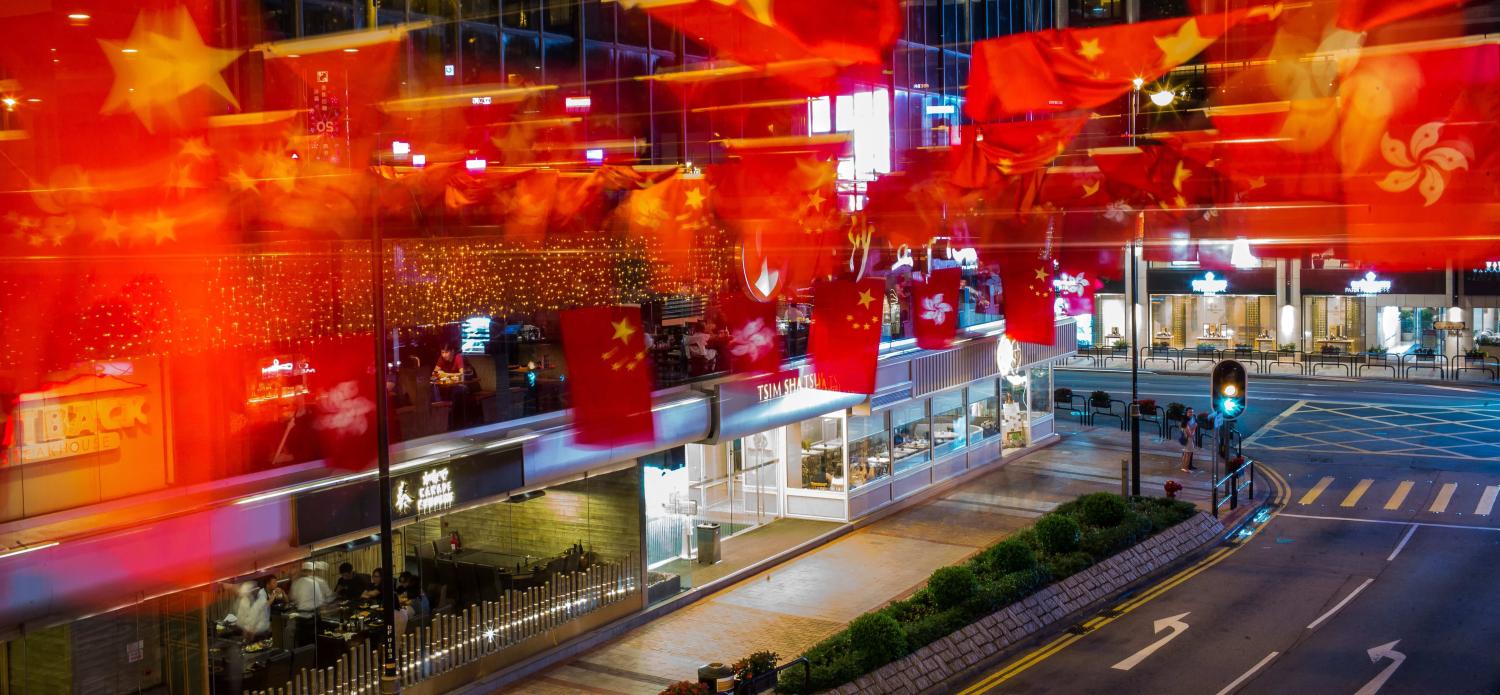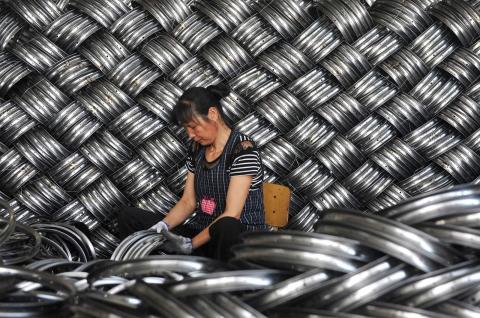Last weekend marked the 20th anniversary of Hong Kong's handover from the UK to China, with Xi Jinping making his first trip to Hong Kong as President to hail the occasion. On Saturday night, Hong Kong's skyline was lit up with red and gold fireworks to mark the event. But not all were in a celebratory mood.
During Xi's visit, key leaders in the 2014 Umbrella Protests were periodically detained for protesting and scuffling with pro-Beijing counter-protesters. But it was Xi's speech that received plenty of media coverage throughout the world, describing any attempt to challenge the power of the central government as a 'red line'. Although unreported in mainland China, pro-independence demonstrators continued to protest Beijing's erosion of Hong Kong's rights and denial of full democratic rights on Saturday afternoon, following Xi's departure.
In China's English-language media, the message intended for international readers was that Hong Kong is inseparably part of China and that China's internal affairs are not up for debate on the international stage. In a Global Times article entitled 'China refutes UK, US remarks on Hong Kong affairs', the author quotes Foreign Ministry Spokesperson Lu Kang emphasising that Hong Kong is a special administrative region of China, making Hong Kong affairs China's internal affairs. The article goes on to dismiss any role the UK might have in the former colony, since under Chinese control, the Sino-British Joint Declaration was a 'historical document (which) no longer has any practical significance nor any binding force on the central government's administration of Hong Kong, SAR.'
Underpinning this article are two of China's foreign policy principles: non-interference and the supremacy of state sovereignty. These philosophies have underpinned China's foreign policy thinking since the 1950s, when Zhou Enlai signed up to the Five Principles of Peaceful Coexistence with India's Jawaharlal Nehru, who would together go on to lead the Non-Aligned Movement.
Most of the English-language coverage (written to influence international debate) focused on the 'one country, two systems' principle. Established as part of the Joint Sino-British Declaration in 1984, the agreement promised Hong Kong a high degree of autonomy and certain economic, social and legal rights (unavailable on the mainland) for at least 50 years. But the system has come under fire recently, as some in Hong Kong claim that the disappearance of five booksellers in the city in 2015 demonstrated China's failure to keep its word, and that Beijing is pressuring Hong Kong to abide by mainland norms.
Chinese-language state-overseen media was flooded with overwhelmingly positive coverage of the 20th anniversary of Hong Kong's return to the 'motherland' – unsurprisingly ignoring the anti-Beijing protesters. Although Xi's praise for the Hong Kong government's control over 'independence forces' was widely reported in Hong Kong media, there was no mention of dissent in the mainland press.
Renmin Ribao, the domestic Chinese-language People's Daily, ran an analysis of Xi's speech entitled 'Xi Jinping's address serves as the trend for Hong Kong's future development'. It stressed that 'one country, two systems' was primarily useful to maintain the unity of China. While making no mention of anti-Beijing protests, the article stressed that Xi believed social stability and harmony should always be maintained in Hong Kong.
The author elaborated on this sentiment using an old Chinese saying, 'If all the family lives in harmony, all affairs will prosper' (家和万事兴), implying that if Hong Kong and China co-exist peacefully, both will thrive materially. Stability is a priority for the government, as it makes economic growth more attainable, which in turn helps it to honour the social contract it holds with all citizens: material wealth and wellbeing in exchange for acceptance of the political status quo.
Chinese-language state-overseen media also made an obvious effort to show off the optimistic opinion of Hong Kongers, and how it was displayed inside the city. One article in Renmin Ribao reviewed Hong Kong's Chinese-language press coverage of Xi's speech, which it analysed as supportive of Xi's emphasis on 'one country, two systems' and the push to better implement it.
A video posted on People's Daily asked young passers-by: when you think of Hong Kong, what do you think of? Among make-up, TV dramas, films, Stephen Chow and Jackie Chan, one young man answers, 'one country, two systems'. The government's message came in many different forms in the Chinese press, but the attempt to reaffirm commitment to the status quo and raise further support is clear. The video, showing young people's positivity towards Hong Kong today, could also be read as an attempt to counter the narrative of growing pessimism among Hong Kong youth about the city's state and its future.
Global Times stressed China's sovereignty over Hong Kong, endorsed the new Chief Executive Carrie Lam and warned that foreign observers, particularly the UK, should not try to influence Hong Kong's internal affairs. While Global Times emphasised first principles, Xinhua's English edition headlines cut straight to the chase. Xinhua led with a warning against challenges to national sovereignty and central government power, and in another article underlined Xi's commitment to 'one country, two systems'.
As these articles and their ideological underpinning show, Beijing is keen to rebut the kind of questions that were always going to come to the fore over Hong Kong's 20th handover anniversary, including over British responsibilities, a loss of belief in the 'one country, two systems', and the prospect of pessimistic youth. But it is also clear that Hong Kong is key to the Chinese Communist Party's quest to consolidate legitimacy and power. As such, Hong Kong remains a central component of how Beijing imagines the future of China. That vision does not include political pluralism nor any type of separatism, but instead strong Party governance, a continuing focus on wealth creation and sovereign independence on the international stage.

